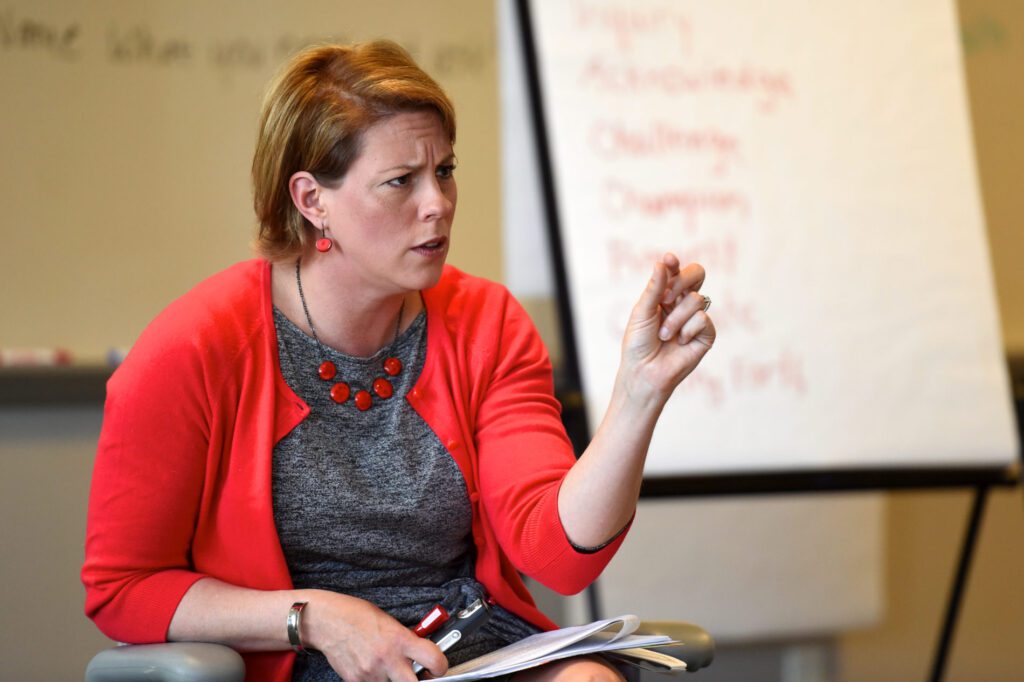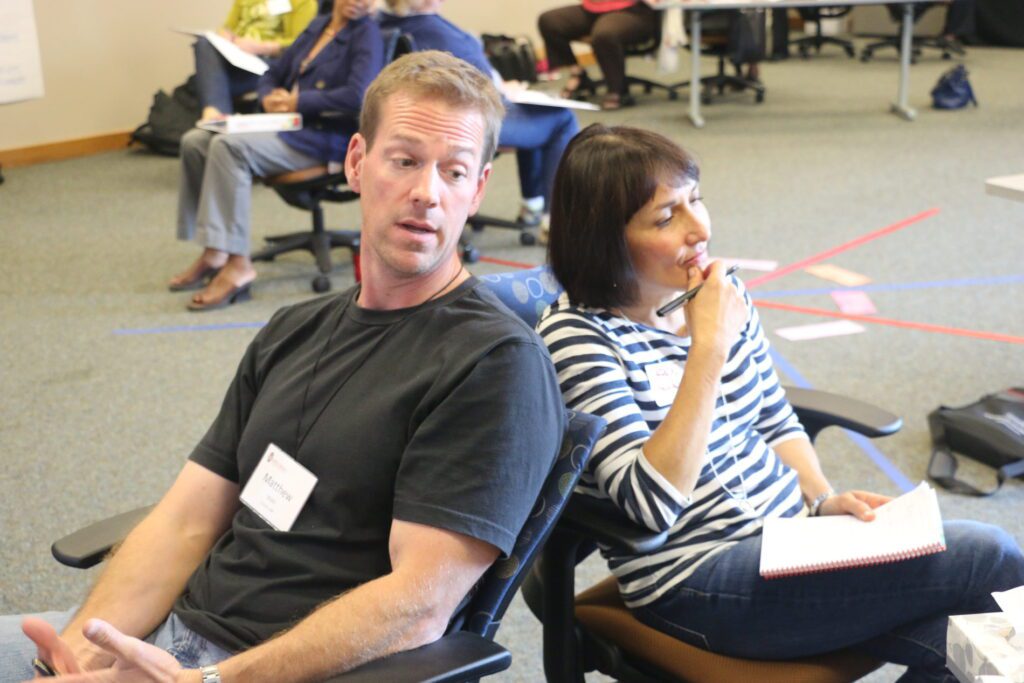
In turbulent economic times, people try to identify sound investment opportunities. Benjamin Franklin, the eminently quotable statesman and philosopher, offered this timeless advice:
If a man empties his purse into his head, no man can take it away from him. An investment in knowledge always pays the best interest.
We know that Franklin’s adage applies to people who invest in a college education. According to Georgetown University’s Center on Education and the Workforce[1], the average worker with a bachelor’s degree will earn about $1 million more over the course of their career, compared to someone with only a high school diploma.

I believe there are similarly compelling ways to measure the benefits of lifelong learning.
According to the Pew Research Center, nearly three out of four adults consider themselves lifelong learners. They pursue formal and informal educational opportunities at all stages of life. In the process, they expand their skills and make new friends. They build professional networks, set new career goals, and find new jobs. They feel more connected to their community and get more involved.[2]
At the University of Wisconsin–Madison, the Professional Life Coaching Certificate (PLCC) is one of our fastest-growing noncredit programs. Through nine months of classes and teleconferences, participants discover how to help others see new perspectives, get unstuck, and make impactful change. Prospective coaches typically apply these new skills in their workplace or other professional setting.
Speaking to a group of recent PLCC graduates, I scanned the room and imagined how all these new coaches would touch so many lives and careers. I thought about the effects they would have on the human and social capital in their companies and communities.

Human capital comprises the knowledge, talents, skills, abilities, experience, intelligence, judgment, and wisdom within an organization, community, or society[3]. Social capital is a measure of largely intangible qualities such as the level of trust within the community, the strength of its interpersonal networks, and its commitment to shared values. [4]
Other, more familiar forms of capital are easier to quantify. For example, we all understand the fundamentals of accumulating financial capital. I recall opening my first passbook savings account as a young man and becoming aware of the miracle of compound interest. Later, I opened a retirement account and learned how to forecast long-term dividends that would come from small, steady investments over a long timeframe. Both represented a shift from arithmetical growth to geometric growth.
Research shows that life coaching has an impact on people’s lives and especially their workplaces. A study by PricewaterhouseCoopers found that professional coaching increases productivity.[5] People who were coached reported improved work performance, better management skills, improved time management, and more effective teams. Another study found that executives who benefited from professional coaching were more organized and productive, exhibiting better leadership skills and enjoying more fulfilling personal relationships.
Anecdotally, PLCC graduates describe passionately how they listen differently, manage more effectively, and see more solutions to everyday challenges. Businesses who employ certified life coaches describe how these subtle changes contribute to a general increase in employee productivity and organizational effectiveness.
In that room full of coaching graduates, I was looking at people who would have this kind of impact within their circles of influence — positive effects that would snowball over time. The following is perhaps one way to illustrate how that compounding effect might occur.
While every coach will use their new skills in different ways, let’s assume that the average life coach in that graduating class will have meaningful interactions with 10 clients or coworkers per year. Over the course of five years, 50 people will benefit from their coaching. If each of those clients realizes a 0.5% increase in productivity, in this conservative hypothetical model, it would be equivalent to gaining about 10 hours per full-time employee. At $30 per hour, that represents $300 worth of additional output, and the compounding effect over a five-year period for all 50 clients totals $45,000.
| Year 1 | Year 2 | Year 3 | Year 4 | Year 5 | TOTAL | |
| Clients (cumulative) | 10 | 20 | 30 | 40 | 50 | 50 |
| Productivity gained (hrs) | 100 | 200 | 300 | 400 | 500 | 1,500 |
| Value ($30/hr) | $3,000 | $6,000 | $9,000 | $12,000 | $15,000 | $45,000 |
Students in the PLCC program devote about 300 hours to their training—about $9,000 worth of time in our model. With registration fees, travel costs, and other expenses, the initial investment adds up to about $17,000. Compare this to the $45,000 productivity gain, and the employer who paid for this training has realized a $28,000 net gain, for a five-year ROI of about 164%.
This theoretical model yields impressive results. Even so, it still fails to illustrate the employer’s full gain.

What is it worth when employees overcome workplace obstacles more effectively? What ripple effects do these high-performing employees have on coworkers, direct reports, and superiors? How valuable is the ability to overcome issues that would otherwise hinder their professional or personal growth? If ineffective behaviors and attitudes can be identified and improved through coaching, how do we calculate the additional ROI?
I understand the benefits that accrue to college-educated individuals in the form of higher earning power. I also appreciate the broader effects of an educated population, which accrue to society as a whole.

As I reflect once more on that room full of life coaching graduates, I am inspired by the tremendous effect they will have on their workplaces and communities.
Multiply our calculations by 12 people, each of whom will have the same ripple effect in their respective workplaces. Then consider that most of our graduates will apply their skills for more than five years, and many will coach dozens of people in various ways.
When I think about the thousands of lifelong learners who pass through our doors every year, choosing to enrich their minds and hone their skills in many ways, I imagine a kind of human capital “mutual fund” where we all contribute. The resulting accumulation of social equity is both geometric and miraculous.
So, if you are looking to make a safe investment, just follow Ben Franklin’s advice and open your mind.
[1] https://cew.georgetown.edu/wp-content/uploads/The-Economic-Value-of-College-Majors-Exec-Summ-Web.pdf
[2] http://www.pewinternet.org/2016/03/22/lifelong-learning-and-technology
[3] https://www.britannica.com/topic/human-capital
[4] https://www.britannica.com/topic/social-capital
[5] https://www.coachfederation.org/need/landing.cfm?ItemNumber=747&navItemNumber=565